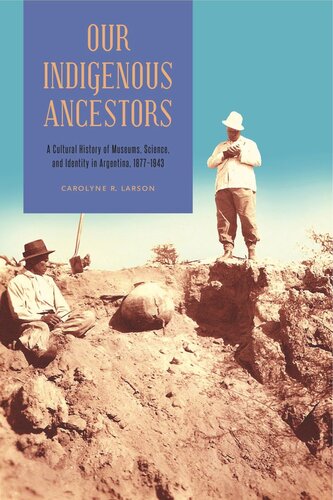

Most ebook files are in PDF format, so you can easily read them using various software such as Foxit Reader or directly on the Google Chrome browser.
Some ebook files are released by publishers in other formats such as .awz, .mobi, .epub, .fb2, etc. You may need to install specific software to read these formats on mobile/PC, such as Calibre.
Please read the tutorial at this link: https://ebookbell.com/faq
We offer FREE conversion to the popular formats you request; however, this may take some time. Therefore, right after payment, please email us, and we will try to provide the service as quickly as possible.
For some exceptional file formats or broken links (if any), please refrain from opening any disputes. Instead, email us first, and we will try to assist within a maximum of 6 hours.
EbookBell Team

5.0
48 reviewsOur Indigenous Ancestors complicates the history of the erasure of native cultures and the perceived domination of white, European heritage in Argentina through a study of anthropology museums in the late nineteenth and early twentieth centuries. Carolyne Larson demonstrates how scientists, collectors, the press, and the public engaged with Argentina’s native American artifacts and remains (and sometimes living peoples) in the process of constructing an “authentic” national heritage. She explores the founding and functioning of three museums in Argentina, as well as the origins and consolidation of Argentine archaeology and the professional lives of a handful of dynamic curators and archaeologists, using these institutions and individuals as a window onto nation building, modernization, urban-rural tensions, and problems of race and ethnicity in turn-of-the-century Argentina. Museums and archaeology, she argues, allowed Argentine elites to build a modern national identity distinct from the country’s indigenous past, even as it rested on a celebrated, extinct version of that past. As Larson shows, contrary to widespread belief, elements of Argentina’s native American past were reshaped and integrated into the construction of Argentine national identity as white and European at the turn of the century. Our Indigenous Ancestors provides a unique look at the folklore movement, nation building, science, institutional change, and the divide between elite, scientific, and popular culture in Argentina and the Americas at a time of rapid, sweeping changes in Latin American culture and society.